

Tao Te Ching
Search Sages
Enter all or part of an sage's name or biography in the fields below, then press tab or enter to filter the list of Authors. Click the headings Name or Biography to sort by that column. Diacritics are ignored when searching.
Click on the author's name to go to their page.
| Author Name | Biography |
|---|---|
| Thomas Edison | 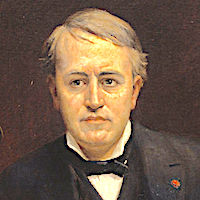 Thomas Edison Thomas EdisonAmerica's greatest inventor “America's greatest inventor,” businessman, and entrepreneur; Edison set up the world’s first industrial research laboratory, first film studio, and held in his name over 1,100 US and foreign patents in many fields including electric power, communications, and motion pictures (his film studio made almost 1,200 films.). Some of his most influential inventions include the light bulb, phonograph, motion picture camera, the fluoroscope, the tasimeter, and the nickel-iron-battery. Henry Ford was a neighbor and employee who Edison helped with his business ventures. A victim of nepotistic seductions, Edison had to take his son to court for using their family name to promote scams, snake-oil products, and fraudulent ventures. He joined Blavatsky’s Theosophical Society, became a strict vegetarian, and promoted nonviolence. |
| Thomas Cleary | 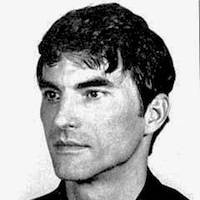 Thomas Cleary Thomas ClearyTranslator of over 80 books from 8 different languages, Cleary mainly focused on translating Buddhist, Taoist, Confucian and Muslim classics never translated into English. Motivated by his own spiritual path and interest in Eastern wisdom and although credential in the scholastic world with a PhD from Harvard and a JD from Berkeley, he shunned the security of academic and institutional roles staying independent and shunning academic cliques, organized education, sectarian allegiance, and anything with shades of a cult. More recently his interests involve Comparative Constitutional Law and he has translated Gallic law texts written in Old Irish with the intention to help the American legal system evolve past its difficulties adapting to our ever-changing new technological world. |
| Thomas Carlyle | 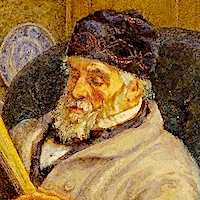 Thomas Carlyle Thomas Carlyle"Great Man” theory of history creator Historian, philosopher, translator, mathematician, and one of his era’s most influential social commentators; Carlyle developed the “Great Man” theory of history. He postulated and described how the world’s great changes were all caused by the decisions and actions of a very small and elite group of prime movers. He emphasized the essence of heroism as a response to intense challenge and difficulty rather than inherent qualities. In later life, these ego-based theories unfortunately led to a critique of democracy, justifications for fascism, nostalgia for slavery, and support for repressive government. His work in mathematics led to innovative methods still used today and one of his books on the French Revolution inspired Dickens' novel, A Tale of Two Cities. |
| Thomas Aquinas | 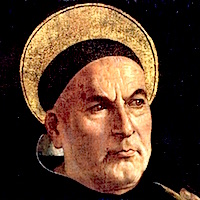 Thomas Aquinas Thomas AquinasGreatest Catholic theologian/philosopher, considered one of the top 12 western philosophers of all time, jurist, and Dominican friar; Aquinas had a dominant influence on Western culture, ethics, law, and political theory. Breaking from the theology of his time, he attempted reconciling ancient Greek philosophy (mainly Aristotle) with Christianity, extolled reason over blind faith, and created an intellectual platform for science that is still being used today by cognitive neuroscientists researching brain dynamics. Undermining dogmatic, rigid approaches to morality, his “Principle of double effect” emphasizes intention over consequences and is still debated in places like the U.S. Supreme Court. John Stuart Mill criticized this attitude stating that while intention may help judge character, it doesn’t effect the rightness/wrongness of an action. |
| Thinley Norbu | 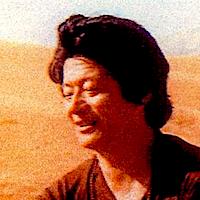 Thinley Norbu Thinley NorbuOldest son of Nyingma head, Dudjom Rinpoche; Dzongsar Jamyang Khyentse Rinpoche's father, and Longchenpa/ Longchen Rabjam lineage manifestation; Thinly Norbu Rinpoche became one of the major teachers of ancient Tibetan wisdom to the modern, Western world. He first came to the usa in 1976; but, unlike most famous spiritual teachers of the time, he kept a lower profile, shunned publicity, and maintained a quiet life practicing and writing books. |
| Thích Nhất Hạnh | 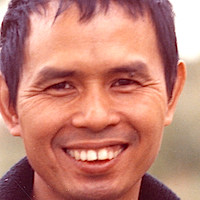 Thích Nhất Hạnh Thích Nhất HạnhPeace activist, Zen monk, Princeton and Columbia University lecturer in the 1960s, author of more than 100 books, influence on Martin Luther King, Jr; Thích Nhất Hạnh blended teachings from many different Buddhist traditions with Western psychology, mindfulness, and social engagement. As a young monk in Viet Nam, he worked on poverty alleviation and development projects in rural Viet Nam rebuilding villages, setting up schools, and establishing health care clinics. Following in the tradition of a 13th century Vietnamese emperor-turned-Buddhist monk, he coined, popularized, and practiced "Engaged Buddhism" promoting nonviolent solutions to problems, vegetarianism, and peace. |
| Théodore Faullain de Banville |  Théodore Faullain de Banville Théodore Faullain de BanvilleFrench poet, writer, and major influence on the Symbolist movement. |
| Thales of Miletus | 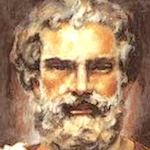 Thales of Miletus Thales of Miletus“Father of Philosophy” One of the “Seven Sages of Greece,” called the founder of Western Science and “Father of Philosophy,” Thales traveled to Egypt and studied with an Egyptian priest. He then returned to become ”the first Greek mathematician,” history’s first to use geometric deductive reasoning, to have a mathematical discovery attributed, and becoming the first to explain nature without myth or superstition, he set the direction for the golden age of Greek philosophy. Wanting to prove the practicality of philosophy and science, he applied it to business creating the first instance of using options and futures and to politics stopping a battle by predicting an eclipse. |
| Thaganapa | 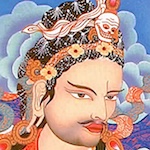 Thaganapa ThaganapaA low-caste, compulsive liar, Thaganapa’s entire life depended on his lies, deception, and scams. One day he met a monk who saw through, confronted, and challenged him to lead a better life. Thaganapa asked for teachings and the monk gave him a practice of using deception as an antidote to deception teaching him that everyone’s experience is deceiving from the beginning, that everything is a lie. He meditated on this for 7 years and then on all as emptiness until he became enlightened himself and taught a path of resolving paradox and unifying conflict. |
| Teresa of Avila |  Teresa of Avila Teresa of AvilaIn a time caught up in the fury and violence of religious intolerance, inquisitions and sectarian war: Teresa symbolized a child-like devotion and surrendering to a forgiving and compassionate god. Saint, reformer, founder of 40 Carmelite monasteries, author and theologian; with deep insight she championed and helped establish a tradition for western mysticism and was the first in the West to harmonize a scientific view with contemplation and a mystical understanding. An inspiration for the Spanish Renaissance and Christian meditation practice, she promoted “mental prayer” and a personal approach to spirituality. |
| Teilhard de Chardin | 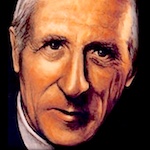 Teilhard de Chardin Teilhard de ChardinPhilosopher, geologist, Jesuit priest and paleontologist, Chardin traveled extensively across China and helped discover Peking Man. Although frequently condemned and censored by church officials and his writings banned, later popes, cardinals and theologians praised him and his ideas. Similarly reviled and revered by scientists and described as everything from a “charlatan” to “one of the century’s most prophetic thinkers,” his life manifested the cutting edge of consciousness evolution he described so clearly. |
| Tao Yuanming |  Tao Yuanming Tao YuanmingGreatest Chinese poet during the Six Dynasties period (220 - 589 CE), one of the biggest poetic influences on Zen and Beat poetry, and in a small group of history’s best poets; stories say Tao Yuanming drained rivers of wine with friends in glades on moonlit nights celebrating the miracle and wonder of moment-to-moment perception. Military/government career drop out, back-to-the-land champion, discoverer of Peach Blossom Spring; he didn’t follow in the steps of any religion, didn’t do any of the recommended practices; he reveled in the fulness of here-and-now working in his garden, reading books, playing the zither, chopping wood and carrying water. |
| Tantipa | 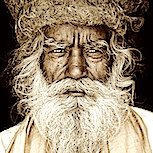 Tantipa Tantipa Mahasiddha #13 When he was 89 years old, Tantipa’s wife died and he became increasingly decrepit and senile. Becoming more and more of a liability to his weaving business and an embarrassment to his family, they built a hidden-away hut for him so they and visitors wouldn’t have to see or hear him. A passing-through Mahasiddhia, Jalandhara gave him teachings and practices to prepare for death and after many years of his silent meditation practice, he overcame the debilities of old age, attained the highest realization, became involved again in his cultural world even stopping the practice of animal sacrifice in his district. His life symbolizes and represents both the internal and external potentials of old age, the inspiration that any condition is fertile ground for enlightenment. |
| Tantepa | 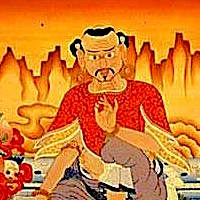 Tantepa TantepaTantepa ཏངྟེ་པ། “The Compulsive Gambler (8th century CE) #33 |
| Tamar | 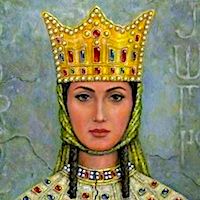 Tamar TamarTamar the Great The first woman to rule Georgia and canonized by the Georgian Church; Tamar developed a powerful military, consolidated an empire, and supported the arts and many cultural advancements. Georgian history considers the time of her rule as the highest point of their Golden Age. She overcame intense resistance to a woman's rule that included exiling her first husband and defeating his coup attempts. Her dynastic heritage claimed descent from King David and her name has a Hebrew origin. Her two sons became the next two kings and she remains romanticized in legends still popular in contemporary Georgian culture. |
| Taizong of Tang 唐太宗 | 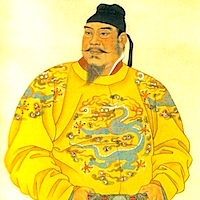 Taizong of Tang 唐太宗 Taizong of Tang 唐太宗One of China’s greatest emperors, co-founder of the Tang Dynasty which became the world’s most civilized power, and architect of a golden age—China’s most creative period; Taizong’s reign became the standard and measure for all future leaders. A scientific and Confucian scholar, he began by killing his brothers and expanding the empire but soon devoted himself to increasing peace and prosperity. Without personal dogma and prejudice, he welcomed Buddhist monks, Nestorian Christians, Zoroastrians, and made the capital so beautiful that it attracted hordes of tourists from as far away as India and Europe. He wrote a book reconciling Buddhism and Taoism, another one on government that became a popular reference for leaders in many different countries, promoted the arts, and it was said of people during that time, “whoever was a man, was poet.” Over 1000 years later, a Manchu emperor commissioned an anthology of Tang poems that included 48,900 poems by 2,300 poets. |
| Táhirih | 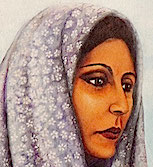 Táhirih Táhirih A genius-deep and curious mind living in a culture and with a husband who didn’t think women should read, be seen, or think for themselves; beautiful, educated, and from one of the most prominent families of her time, Tahirih is said to be the first woman to unveil and question Islamic political and religious orthodoxy which led to her imprisonment and execution. She rose above immense obstacles and became a famous poet, philosopher, and religious leader inspiring and organizing women to reject their oppression. “The first woman suffrage martyr,” her poems are still popular and her influence on Bábí, Bahá’í, and women’s rights are immense and continuing to this day. |
| T. S. Eliot | 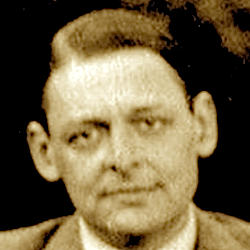 T. S. Eliot T. S. EliotT.S. Eliot, Thomas Stearns Eliot (1888-1965) |
| Swami Vivekananda | 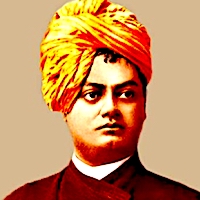 Swami Vivekananda Swami Vivekananda"The maker of modern India" Patriotic saint and “maker of modern India,” main Ramakrishna disciple, introducer of Vedanta and Yoga into the Western world, important influence on the revival of Hinduism, and force for nationalism in colonial India; Vivekananda taught that all beings are part of a divine self and so serving mankind is the same as serving god. Teaching that all religions and sects within Hinduism are only different paths to the same goal, he saved Hinduism from the irrelevancy of only following antiquated traditions. Gandhi praised him for “cutting down the dead wood of tradition,” Rajaji crediting him for “saving Hinduism,” and Sri Aurobindo said that he “awakened India spiritually.” An inspiration for Aldous Huxley, Nikola Tesla, and Christopher Isherwood; he motivated the establishment of Indian science institutes and universities. |
| Susanna Clarke | 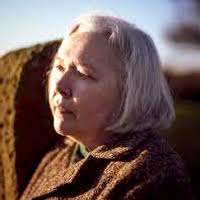 Susanna Clarke Susanna ClarkeSusanna grew up in a family with a Methodist minister father who frequently had to relocate. This probably encouraged her more outsider, individualistic approach to writing. She worked for more than 10 years on her first novel, Jonathan Strange & Mr Norrell before it was published (after two major rejections) in 2004 winning the Hugo, World Fantasy, and many other Awars. To support her literary efforts, she worked teaching English as a second language, editing cookbooks for Simon & Schuster, and helping Quarto and Gordon Fraser with publishing projects. Her inward journey during this time was obviously much more interesting than how things looked from the outside. |